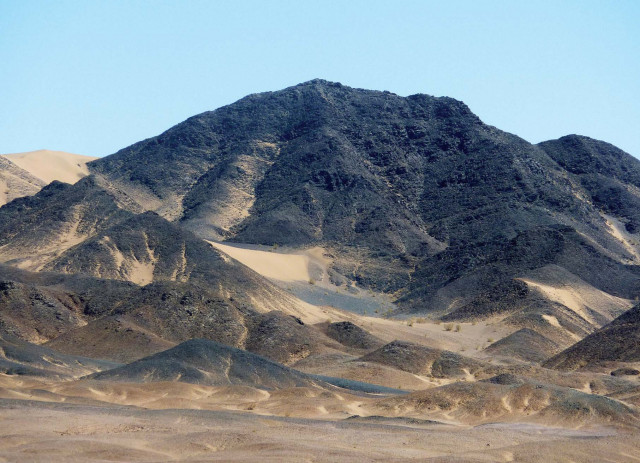Fool’s gold?: Reko Diq rift exposes investor risk
TCC’s study was the largest single FDI in Pakistan’s history.

Reko Diq, an untapped copper and gold mine of fabulous potential, was meant to be the biggest foreign investment in the country’s mining sector, but it’s beginning to look more like fool’s gold to the companies involved. The project was expected to yield revenues of at least $60 billion over the 56-year life of the mine.
Tethyan Copper Company (TCC), a joint venture between Chile’s Antofagasta and Canadian-based Barrick Gold, had sunk $220 million over the past five years into exploring the deposit. It was planning to invest a total of $3.3 billion when the provincial government abruptly refused to grant a mining license last year. TCC says it never did get an explanation.
“It’s been difficult to define what their actual issues were,” Tim Livesey, CEO of TCC, told Reuters in an exclusive interview. “We went back to them for clarification, as many of their issues are not covered in the Balochistan Mining Regulations.”
A local government official, who requested anonymity, said TCC took too long to complete its feasibility study and that it was “cheating” Balochistan by under-valuing the worth of the copper and gold.
“They are the monopoly,” the official said angrily. “They are the monopolists of the gold! They don’t want to disclose the worth of the gold in Balochistan.”
The case is now before the Pakistan Supreme Court, and TCC has filed for international arbitration. The Balochistan government, meanwhile, has recently handed out 11 exploration permits in the area around Reko Diq to five new Pakistani and Chinese companies with no mining experience.
What’s the deal?
The Balochistan government received a 25 per cent stake in the venture for no money down. Adding in taxes and royalties, the total share of revenues to the provincial and federal governments would come to just over half.
According to documents filed with the Supreme Court, TCC projected the mine would produce at least $60 billion worth of ore over its lifespan based on long-term copper and gold prices of $2.2/pound and $925/ounce, respectively.
Higher spot prices would increase that sum significantly. Based on recent copper and gold prices, the mine would be worth almost $120 billion, with Balochistan getting a quarter of that after operating costs. It is this difference in long-term and spot prices that has led to angry allegations in the media and from Balochis that outsiders are exploiting their natural wealth.
Investment risk
Despite its remoteness, TCC’s Livesey said the project would add “percentage points” to Pakistan’s gross domestic product, which grew at just 2.4 per cent in fiscal 2010-11.
Indeed, the mining sector has been hit especially hard, posting only 0.4 per cent growth last year and contributing just 2.4 per cent of GDP, down from a peak of 2.7 per cent in 2004-5. TCC’s feasibility study alone was already the largest single foreign direct investment in Pakistan’s history.
The rejection of a mining license after an exploration permit had been granted is highly unusual, industry sources say, and has heightened perceptions of foreign investment risk in Pakistan.
The Balochistan government says it rejected TCC’s permit because the company didn’t complete the feasibility study on time and the study did not cover the entire area for which the exploration license had been granted.
But TCC and mining experts say it is normal to submit feasibility studies for a smaller area than originally explored.
Pakistan is already viewed as a high risk investment due to chronic civil and sectarian conflict, terrorism, corruption, poor regulation and chronic power outages. Legal uncertainty would only add to that list.
Published in The Express Tribune, February 18th, 2012.



















COMMENTS
Comments are moderated and generally will be posted if they are on-topic and not abusive.
For more information, please see our Comments FAQ